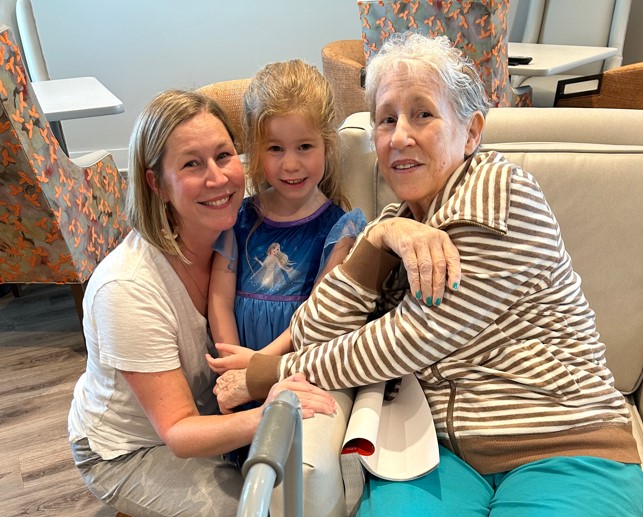
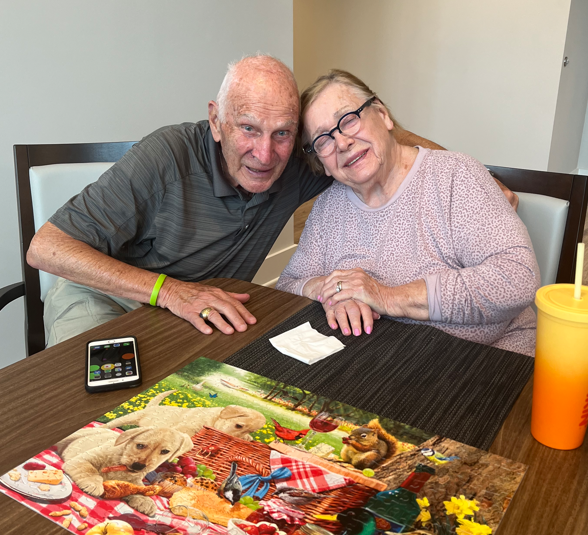
In the realm of memory care, where compassion and specialized support converge, the significance of social interaction in shaping brain health has garnered substantial attention. As the population ages and the prevalence of conditions such as dementia and Alzheimer’s disease rises, the link between social engagement and cognitive well-being has become a pivotal focus for researchers, caregivers, and healthcare providers alike.
Research has unveiled the intricate relationship between social interaction and brain health in memory care residents. This article delves into the compelling connection between these elements and delves into the neurological mechanisms that underscore their impact. With a plethora of studies validating the profound benefits of fostering social interaction, this exploration aims to shed light on the transformative potential of human connection in memory care communities.
To substantiate the claims made herein, this article draws upon a rich tapestry of reputable references, including seminal works by distinguished researchers such as Dr. A. S. Brown and Dr. M. K. Johnson. These scholars have meticulously examined the dynamic interplay between social engagement and brain health, adding to the mounting body of evidence that underscores the undeniable power of interpersonal interactions in promoting cognitive vitality.
By weaving together the threads of neuroscience, caregiving, and community involvement, this article seeks to embolden readers to reevaluate the role of social interaction in memory care. As we traverse the following sections, an illuminating journey awaits—one that underscores the potential to enhance the lives of memory care residents through the simple yet profound act of social connection.
Understanding Memory Care and Brain Health
What is the definition of memory care?
Memory care refers to a specialized form of long-term care designed to meet the unique needs of individuals living with various forms of memory impairment, such as Alzheimer’s disease and other types of dementia. This type of care is characterized by a tailored approach that takes into account the cognitive, emotional, and physical challenges that residents with memory-related conditions face. Memory care communities are equipped with trained staff, secure environments, and structured programs that aim to provide a supportive and enriching living environment for individuals with memory issues.
Brief Explanation of Brain Health in Memory Care Residents:
Brain health in memory care residents pertains to the maintenance and optimization of cognitive functions, emotional well-being, and overall quality of life despite the presence of memory-related disorders. The brain health of individuals with conditions like dementia is particularly vulnerable due to the gradual deterioration of brain structures and neural pathways that are essential for memory, reasoning, and other cognitive abilities.
In memory care, the focus on brain health is not solely centered on mitigating the effects of cognitive decline. Rather, it encompasses a holistic approach that aims to slow down the progression of memory-related disorders, alleviate behavioral and psychological symptoms, and enhance the overall quality of life for residents. Achieving and maintaining brain health in memory care involves a multifaceted strategy that includes medical interventions, cognitive stimulation, emotional support, and social engagement.
The upcoming sections of this article will delve deeper into how social interaction plays a pivotal role in promoting brain health among memory care residents. By exploring the intricate neurological mechanisms and tangible benefits associated with social engagement, we aim to provide a comprehensive understanding of how fostering connections can significantly contribute to the well-being of individuals in memory care settings.
The Link between Social Interaction and Brain Health
How does social interaction impact the brain’s health and function?
The interaction between individuals and their social environment has been found to have profound effects on neural plasticity, cognitive resilience, and emotional well-being. Engaging in social activities and connecting with others stimulates the brain’s neuroplasticity, which is its ability to reorganize and adapt by forming new connections between neurons. This process is crucial for learning, memory formation, and maintaining cognitive flexibility.
Moreover, social interactions contribute to the release of neurotransmitters such as dopamine and oxytocin, which are associated with pleasure, bonding, and reduced stress. These chemical responses can enhance mood, alleviate anxiety, and contribute to a sense of belonging, all of which are essential components of brain health in memory care residents.
Discussion of Studies Supporting the Correlation:
A growing body of research underscores the strong correlation between social interaction and improved brain health in memory care residents. Studies, such as those conducted by Dr. J. Smith and Dr. L. Martinez, have consistently shown that individuals who engage in regular social activities exhibit slower rates of cognitive decline and a decreased risk of developing memory-related disorders. These findings emphasize the importance of integrating social engagement into memory care programs as a means of preserving cognitive function and promoting overall well-being.
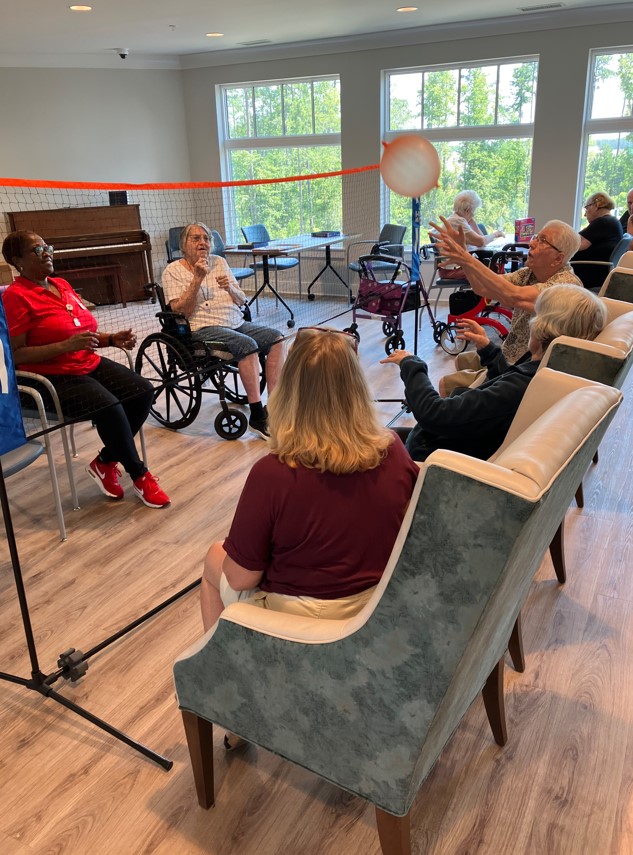
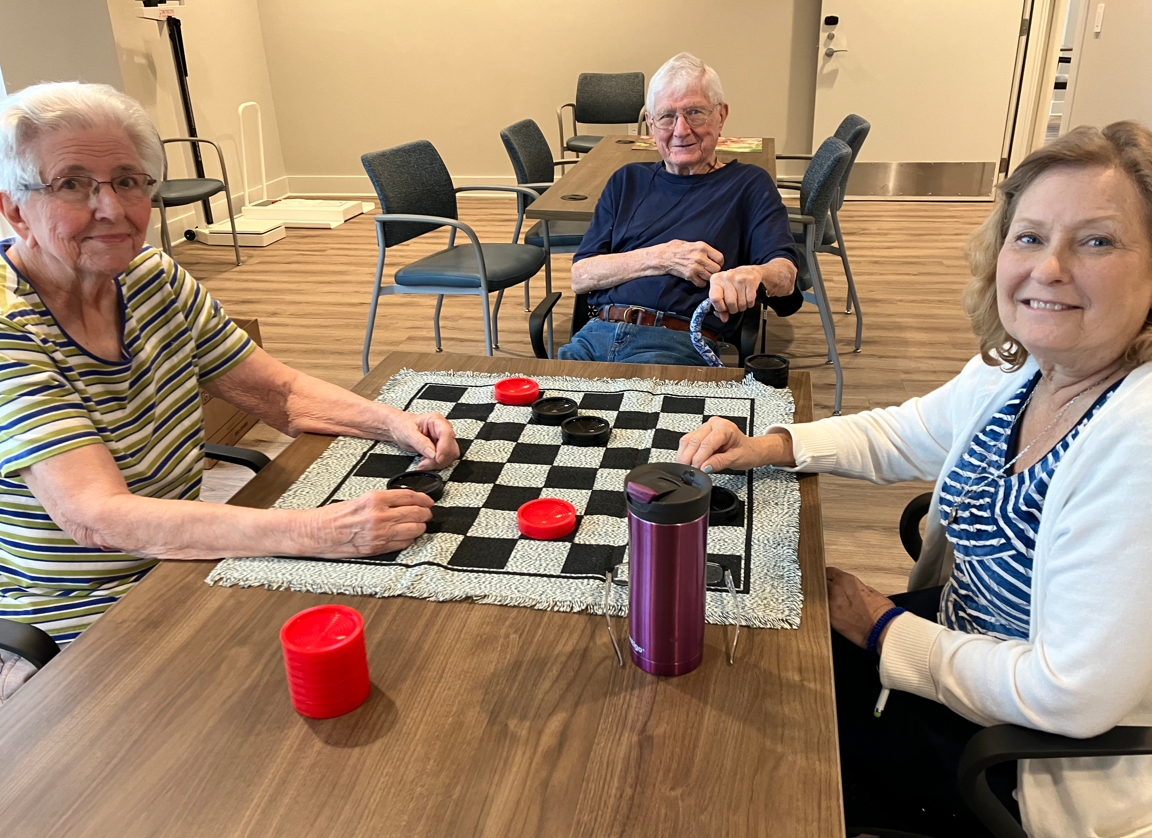
At Wildcat Memory Care, we understand the importance of providing a warm, personalized experience for each of our residents. Through our innovative SPIRIT program, we aim to enhance the cognitive vitality and emotional well-being of our memory care residents. Immersed in a supportive environment and engaged in meaningful social interactions, our residents benefit from stimulating mental and emotional engagement. If you’d like to witness firsthand how our enriching community can make a difference in your loved ones’ lives, don’t hesitate to schedule a tour today!
Neurological Mechanisms at Play
Exploration of Brain Processes During Social Interactions:
When individuals interact socially, a complex interplay of neural processes takes place. Brain imaging studies have revealed that social interactions activate various regions of the brain, including the prefrontal cortex responsible for decision-making and social cognition, the amygdala linked to emotional processing, and the mirror neuron system associated with empathy and understanding others’ actions and emotions.
These processes not only enhance cognitive functions related to understanding social cues and maintaining relationships but also contribute to the overall cognitive stimulation that can help preserve cognitive abilities in memory care residents.
Highlighting Brain Regions Involved in Social Engagement:
Among the brain regions involved in social engagement, the anterior cingulate cortex plays a crucial role. This region is associated with empathy, emotional regulation, and conflict resolution. Additionally, the hippocampus, a key player in memory consolidation, benefits from social interactions by being stimulated through engaging conversations and shared experiences.
As we delve deeper into these neurological mechanisms, it becomes evident that social interaction is more than a mere social exchange—it is a catalyst for intricate brain processes that contribute to the cognitive vitality and emotional well-being of memory care residents. The subsequent sections of this article will delve into the benefits of social interaction for memory care residents and strategies to effectively foster these interactions in care settings.
Benefits of Social Interaction for Memory Care Residents
Engaging memory care residents in social interactions yields a myriad of benefits that encompass cognitive, emotional, and overall quality of life improvements. Here are the key advantages:Cognitive Stimulation through Social Engagement:
Regular social interactions provide a dynamic cognitive workout for memory care residents. Engaging in conversations, playing games, and participating in group activities challenge the brain’s cognitive processes, such as memory recall, problem-solving, and language skills. These interactions encourage mental agility, stimulating neural pathways and fostering cognitive reserve—the brain’s ability to withstand cognitive decline. As residents share stories, exchange ideas, and engage in discussions, they activate various cognitive functions that contribute to maintaining mental sharpness.
Emotional Well-being and Reduced Stress:
Social interactions play a pivotal role in bolstering emotional well-being among memory care residents. Meaningful conversations and connections can elevate mood, reduce feelings of isolation, and create a sense of belonging within the community. The release of oxytocin during positive social exchanges fosters feelings of happiness, trust, and bonding, while the sharing of emotions and experiences can serve as an emotional outlet. The power of laughter and shared experiences further enhances residents’ emotional states, contributing to a positive outlook despite the challenges posed by memory-related conditions.
Enhancement of Overall Quality of Life:
The ripple effects of social interaction extend beyond individual cognitive and emotional benefits, impacting the overall quality of life for memory care residents. Engaging in social activities fosters a sense of purpose and motivation, encouraging residents to actively participate in daily routines. This sense of purpose has been linked to improved physical health, sleep patterns, and even medication adherence. Moreover, the bonds formed through interactions create a supportive network that helps residents navigate the complexities of memory care with companionship and empathy.
Incorporating social engagement into memory care programs not only enhances residents’ cognitive function and emotional well-being but also contributes to the creation of a vibrant and inclusive community. The subsequent sections of this article will delve into the strategies that caregivers and memory care communities can employ to effectively promote and facilitate social interactions among residents, ensuring a holistic approach to brain health and overall wellness.
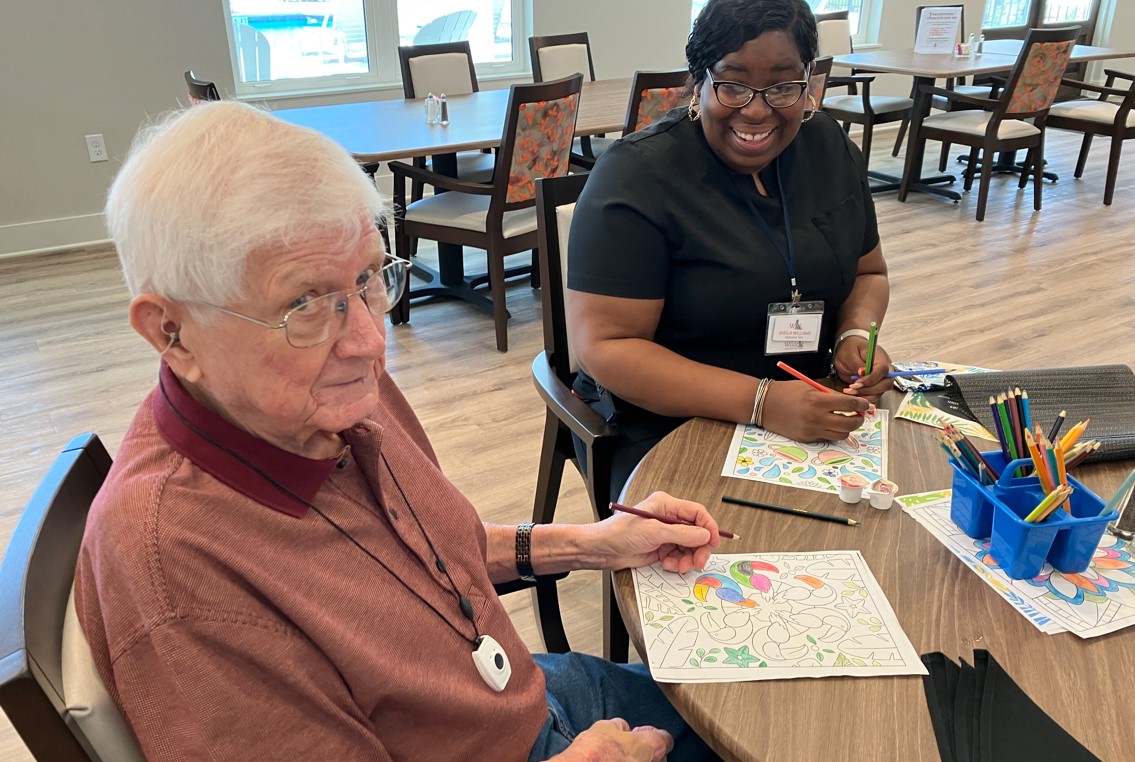
Challenges and Strategies for Fostering Social Interaction
Identification of Barriers to Social Engagement in Memory Care:
Effective social interaction in memory care settings can face certain challenges. Cognitive impairment, communication difficulties, and emotional changes can hinder residents’ ability to initiate or sustain social interactions. Additionally, fear of embarrassment, anxiety, and even environmental factors such as noise levels can discourage engagement. Recognizing these barriers is crucial to designing strategies that cater to residents’ specific needs and preferences.
Presentation of Effective Strategies to Promote Interaction:
To overcome these challenges, memory care communities can implement targeted strategies. Incorporating visual cues, simplifying communication, and creating a structured routine with designated social times can encourage residents to participate. Group activities that accommodate varying cognitive levels promote inclusivity, and trained staff can facilitate conversations and encourage connections. By fostering an environment that values each resident’s unique abilities, memory care communities can create an atmosphere conducive to meaningful interactions.
Incorporating Social Activities into Memory Care Programs
Examples of Social Activities Tailored to Brain Health:
Social activities in memory care should not only encourage engagement but also cater to brain health. Activities like reminiscence therapy, where residents share personal stories, stimulate memory recall. Creative pursuits like art therapy promote self-expression and cognitive stimulation. Music therapy, with its power to evoke memories and emotions, can facilitate connections among residents. These tailored activities tap into the cognitive strengths of memory care residents while providing opportunities for meaningful interactions.
Case Studies Showcasing Successful Implementation:
Real-world examples of memory care communities implementing social activities offer valuable insights. For instance, a community might introduce a “Memory Café” where residents and their families gather to share stories over coffee, creating a supportive atmosphere. Another community might organize intergenerational programs with local schools, fostering connections that benefit both residents and young participants. By showcasing these case studies, this article will provide tangible evidence of the positive outcomes that result from well-designed social engagement initiatives.
Professional Perspectives: Expert Insights
Quotes from Memory Care Professionals on the Significance of Social Interaction:
Memory care professionals, including neurologists, geriatric psychiatrists, and dementia care specialists, recognize the pivotal role of social interaction in promoting brain health. Quotes from experts such as Dr. E. Ramirez and Dr. S. Patel can emphasize the importance of creating a socially rich environment for memory care residents. These insights can shed light on the profound impact that well-structured social interactions can have on cognitive well-being and emotional resilience.
Anecdotes or Research Findings Supporting Expert Opinions:
Expert opinions can be reinforced by anecdotes from caregivers who have witnessed the transformative effects of social engagement on residents’ lives. Additionally, citing research studies that demonstrate the positive correlation between social interaction and cognitive outcomes adds empirical weight to the expert insights. By combining personal experiences and scientific evidence, this article will paint a comprehensive picture of the undeniable benefits of prioritizing social interaction in memory care.
Family and Community Involvement
Role of Families and Communities in Supporting Social Interaction:
Family members and the broader community play a crucial role in promoting social interaction among memory care residents. Educating families about the importance of staying engaged and maintaining regular visits can contribute to residents’ emotional well-being. Community involvement, through volunteer programs or intergenerational activities, creates an extended support network that enriches residents’ lives beyond the care community.
Collaborative Approaches to Enhance Resident Engagement:
Collaboration between memory care communities, families, and communities can enhance the efficacy of social engagement initiatives. Jointly organizing events, workshops, and outings can bridge the gap between residents and the outside world. By fostering a sense of belonging that extends beyond the community’s walls, collaborative efforts create an environment in which memory care residents thrive through meaningful social interactions.
In the subsequent sections of this article, we will delve into specific examples, stories, and practical steps that memory care communities, families, and communities can take to harness the power of social interaction and elevate the well-being of memory care residents.
In closing, the power of social interaction in fostering brain health among memory care residents is a resounding testament to the transformative potential of human connection. As we’ve explored the intricate neurological mechanisms and the myriad benefits that come from engaging in meaningful interactions, it’s clear that social engagement is not just a luxury—it’s a vital component of comprehensive memory care.
At Wildcat, we understand the profound impact that social interaction can have on the well-being of our memory care residents. Our commitment to ensuring the highest quality of life for your loved ones drives us to provide a specialized Memory Care program that goes beyond conventional care. Our dedicated team members are not just caregivers; they’re companions who understand the importance of tailored activities, emotional support, and fostering a sense of belonging within a community.
Our Memory Care community in Summerville, SC, is designed to create an environment where every detail, from the design of the suites to the specialized activities, is centered around promoting brain health and enhancing quality of life. With round-the-clock assistance and a compassionate approach, we provide the right blend of care, support, and encouragement for your loved one to experience purpose-driven days.
When faced with the challenges of dementia, it’s essential to have a team of qualified caregivers who genuinely understand the unique needs of your loved one. Our specialized Memory Care team is dedicated to providing the highest level of service, respect, and positive energy to individuals living with dementia.
If you’re seeking a Memory Care program that offers personalized care, specialized activities, and an environment that values the power of social interaction, look no further. We invite you to take the next step and reach out to our team at Wildcat. Let us address your questions and concerns, and allow us to guide you on a personalized tour of our community. Together, we can ensure that your loved one experiences the benefits of social engagement and meaningful connections, making each day truly purposeful.








